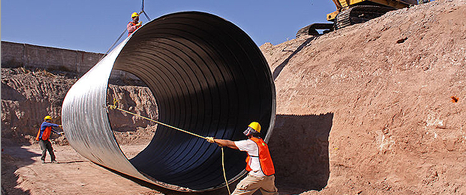Evidence-based Advocacy
Evidence-based Advocacy

The objective of this phase is to improve awareness of and insight into the potential and barriers for multiple-use water services of stakeholders at national and intermediate levels within a certain context. This new awareness and insight can stimulate stakeholders, organisations and institutions to contribute to the creation of an enabling environment for multiple-use water services, for instance by widening sectoral mandates, improving stakeholder coordination and putting in place MUS-enabling (implementation) policies.
OBJECTIVE
The objective of this phase is to improve awareness of and insight into the potential and barriers for multiple-use water services of stakeholders at national and intermediate levels within a certain context. This new awareness and insight can stimulate stakeholders, organisations and institutions to contribute to the creation of an enabling environment for multiple-use water services, for instance by widening sectoral mandates, improving stakeholder coordination and putting in place MUS-enabling (implementation) policies.
ACTIVITIES
DATA COLLECTION AND ANALYSIS TO FEED EVIDENCE BASED ADVOCACY FOR MUS
- Research on costs and benefits: Research has shown that relatively high incremental benefits can be obtained against relatively small incremental costs, when moving from providing single to multiple-use services. Mapping costs and benefits of multiple-use water services and the incremental costs and benefits of going from single to multiple-use services in a specific context can strengthen this argument and can be used to advocate for multiple-use water services.
- Research onde factomultiple uses of water: People have been using water for multiple uses since time immemorial. Mappingde factonon-planned uses can help advocating for interventions that facilitate these multiple uses.
- Research on institutional linkages between water sub-sectors: Different stakeholders have different roles and functions, related to (supporting) multiple-use water service provision, and are allocated different funding streams. Mapping these roles, responsibilities, funding streams and their overlap can help advocating for better stakeholder coordination.
- Implementing and testing innovative scalable models for MUS: This includes testing physical infrastructure that supports or enables MUS in a certain context, but also testing innovative organisational and/or financial models that facilitate MUS.
This research can be undertaken by research or knowledge organisations in order to develop evidence-based advocacy material to stimulate MUS. Also, relevant intermediate and national level stakeholders can be actively involved in the research, which will facilitate the uptake of lessons learnt by these stakeholders and can contribute to the development of the capacity of these stakeholders. See Section B: Capacity development
DEVELOPING AND DISTRIBUTING EVIDENCE-BASED INFORMATION AND ADVOCACY MATERIALS
Developing and distributing evidence-based information and advocacy materials based on the above described research, can contribute to the development of awareness of the potential and barriers for MUS. This data and information will have to be presented and made accessible in appropriate ways, to suit different audiences.
TOOLS
The following tools can be useful to support the activities within this phase:
